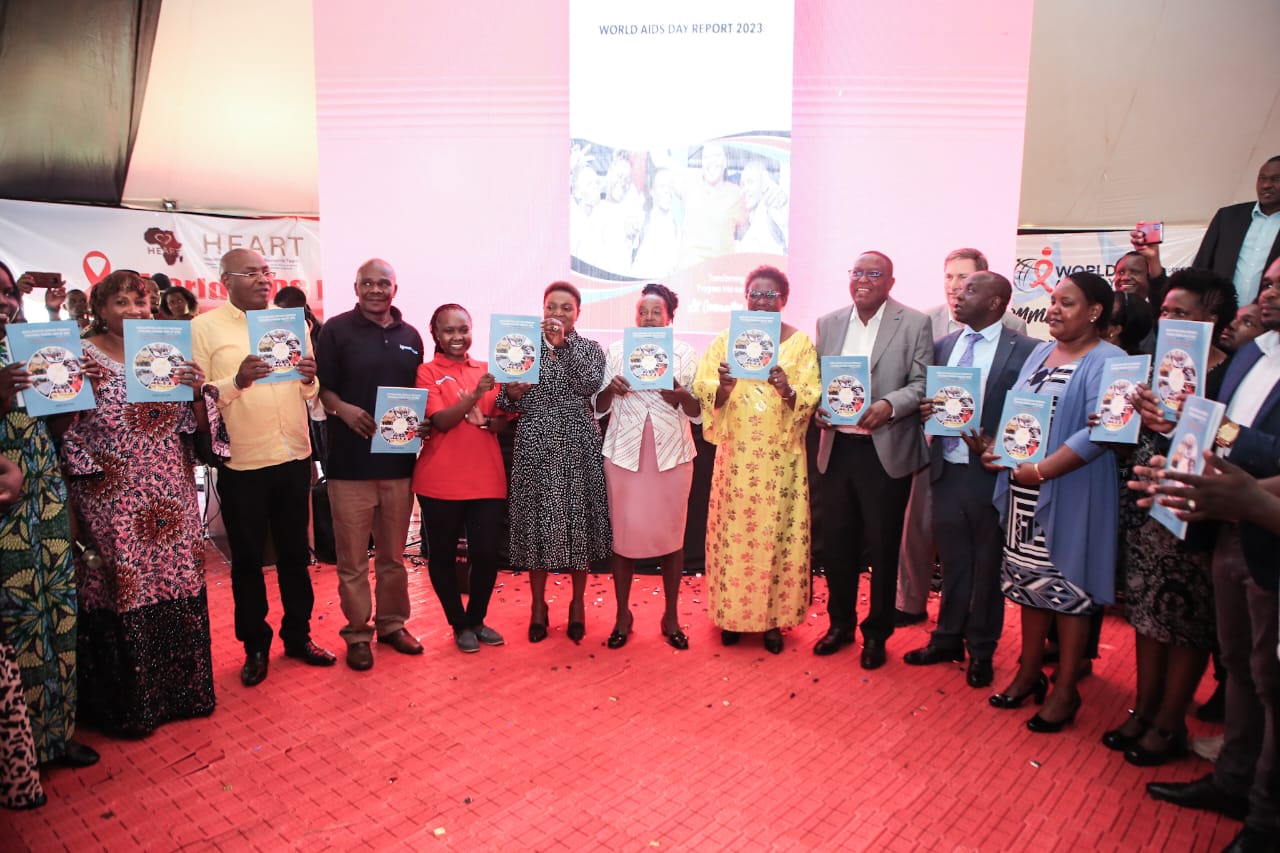The Cabinet Secretary for Health Nakhumicha S. Wafula has backed communities for their pertinent role that focuses on both prevention and treatment of HIV/AIDS hence promoting behavioural change such as condom use to reduce sexual transmission, adherence counselling in life-long therapy and ways to combat the challenges of stigma and discrimination
Speaking in Meru County during the commemoration of the annual World AIDS Day,Nakhumicha lauded communities for being at the forefront of responses to HIV since the start of the epidemic over 30 years ago.
“Communities have played a crucial role in reaching people with treatment, prevention, care and support, advancing human rights and reducing gender inequalities.As we press forward to address the challenges around HIV/AIDS, let us remember the power of communities to bring about change. We extend our gratitude to the Community Health Promoters and wish everyone a happy festive season” she said
Reliance on Community Health Promoters (CHPs) for HIV care continues to increase, particularly in resource-limited settings.
The benefits of engaging this cadre of health providers include their familiarity with local issues, rapport with community members, and lower human resource costs
According to Nakhumicha, CHPs perform multiple functions in HIV programmes, including referring community members for HIV testing, linking them to care, accompanying them to clinic appointments, providing psychosocial support and making referrals to other services
This she said will help in execution of Universal Health Coverage through eradication of pregnancy among adolescent girls and young mothers who have severe health and social consequences, leading to intergenerational cycles of poverty.
“As we address these gaps, special attention must be given to children and adolescents. It is unacceptable to overlook sexual violence against children, and we invite stakeholders to join us in ending the Triple Threat of new HIV infections, pregnancies, and sexual and gender-based violence among adolescents.It’s essential to include HIV interventions into the essential benefits package and having a mechanism for channeling HIV treatment related funds towards increasing the resource pool of health insurance available to cover persons living with HIV sustainably hence achieve MoH UHC targets and agenda” she added
Area Governor Kawira Mwangaza hailed the ruling admnstration for ensuring that kits belonging to CHPs are deployed for facilitation of their work in an effort aimed at the delivery of health which is a devolved function of government.
She noted that her office in partnership with President William Ruto’s government will work together to support Community Health Workers, now identified as Community Health Promoters. The two levels of government will co-sponsor standardization and remuneration of grassroots workforce.
“I want to thank National Syndemic Diseases Control Council (NSDCC) for considering Meru as the host of this auspicious function. I will keep collaborating with the government of the day to ensure we improve the standards of health around the country and especially in my backyard Meru.To CS Nakhumicha;thank you for amazing job and for ensuring kits flagged by our Head of State for our CHPs get here in totality and in good standardized shape” remarked Mwangaza
This year’s theme for World AIDS Day is “Let Communities Lead”. The annual event serves as a reminder of the global struggle to end HIV-related stigma, an opportunity to honor those lost, and a rallying cry to commit to working toward a day when HIV is no longer a public health threat.
The first World AIDS Day took place in 1988, providing a platform to raise awareness about HIV and AIDS and honor the lives affected by the epidemic. Over the past 35 years, there has been significant progress in addressing HIV and AIDS thanks to advancements in medical research, increased access to treatment and prevention, and a broader understanding of the virus.
According to statistics, 1.3 million of the 1.4 million people living with HIV receive ARVs from more than 3,000 health facilities in Kenya, including more than 48,000 children and 55,000 breastfeeding mothers.





